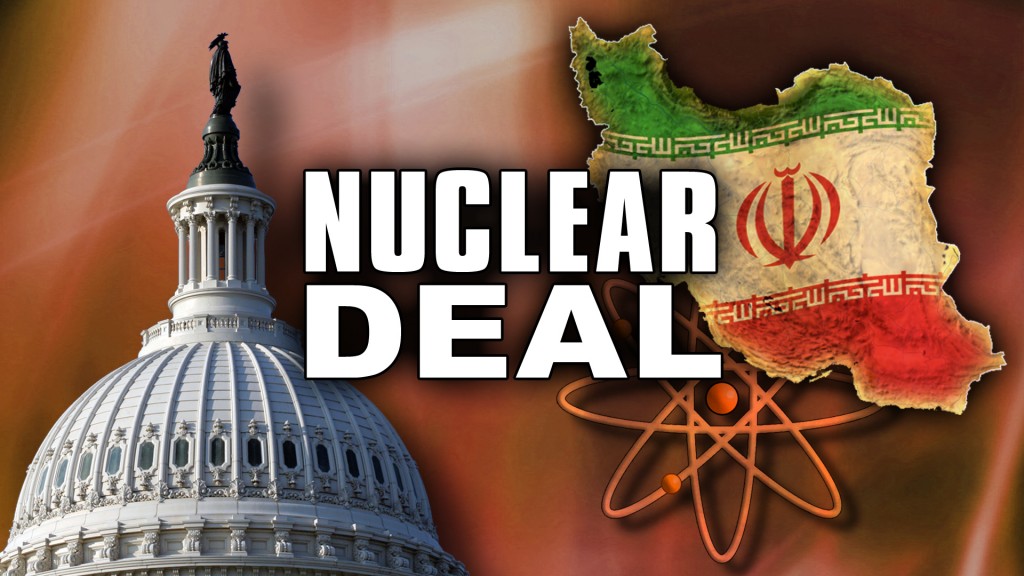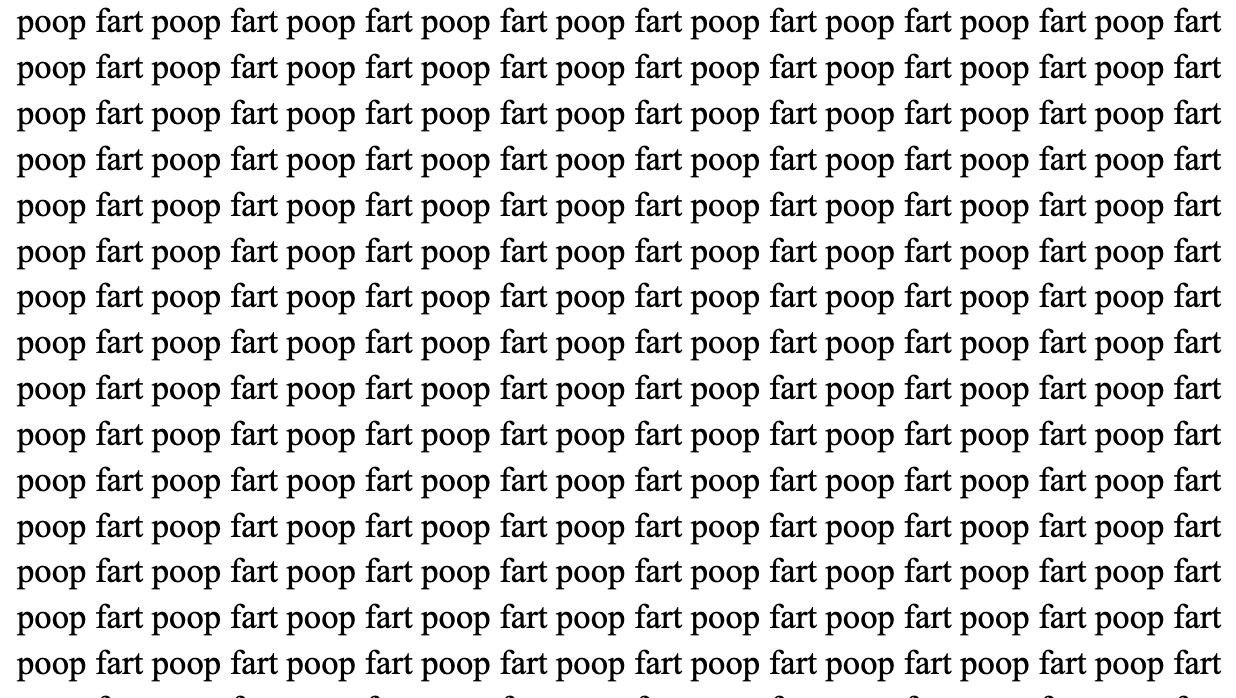U.S.-Iran Nuclear Talks: Stalemate On Key Issues

Table of Contents
Sanctions Relief and Verification
The central disagreement revolves around the lifting of U.S. sanctions on Iran. Both sides have entrenched positions, making a breakthrough challenging. This section details the complexities of sanctions relief and verification within the context of the U.S.-Iran nuclear talks.
Iran's Demands
Iran insists on verifiable and comprehensive sanctions relief as a precondition for returning to full compliance with the Joint Comprehensive Plan of Action (JCPOA), the 2015 nuclear deal. Their demands include:
- Lifting of sanctions targeting Iranian oil exports: These sanctions severely restrict Iran's ability to sell oil on the global market, impacting its economy significantly.
- Removal of sanctions against Iranian financial institutions: These sanctions hinder Iran's access to the international banking system, limiting its ability to engage in international trade.
- Ending sanctions targeting the Islamic Revolutionary Guard Corps (IRGC): The IRGC, a powerful military and political force in Iran, has been subject to numerous sanctions, which Iran sees as an affront to its sovereignty.
Iran demands guarantees that the sanctions will not be reimposed, fearing a repeat of the Trump administration's withdrawal from the JCPOA in 2018 and the subsequent reimposition of sanctions. This lack of trust is a major obstacle to reaching an agreement.
U.S. Concerns
The United States expresses concerns about verifying Iranian compliance and preventing sanctions evasion. Their concerns include:
- Robust mechanisms for monitoring Iran's nuclear program: This includes rigorous inspections by the International Atomic Energy Agency (IAEA) and transparent reporting of nuclear activities.
- Phased lifting of sanctions: The U.S. advocates for a phased approach, lifting sanctions incrementally as Iran demonstrates verifiable compliance with its commitments.
- Preventing sanctions evasion: The U.S. is wary of Iran's ability to circumvent sanctions through various methods, including using shell companies and offshore accounts.
The U.S. position emphasizes the need for strong verification mechanisms to ensure that any sanctions relief is not misused to advance Iran's nuclear ambitions or fund destabilizing activities in the region.
Iran's Nuclear Enrichment Program
Another major sticking point concerns Iran's advancement in uranium enrichment capabilities. The enrichment level and the size of its enriched uranium stockpile are key concerns for the international community.
Enrichment Levels and Stockpiles
Iran's current enrichment levels and the stockpile of enriched uranium it possesses are significantly higher than those permitted under the JCPOA. Specifically:
- 60% enrichment: Iran has significantly advanced its enrichment capabilities, reaching 60% enrichment—a level far closer to weapons-grade uranium (90%) than the 3.67% allowed under the JCPOA.
- Enriched uranium stockpile: Iran possesses a substantial stockpile of enriched uranium, exceeding limits set by the JCPOA.
This rapid advancement raises concerns about Iran's potential to quickly produce a nuclear weapon if it chooses to do so. The technical aspects of uranium enrichment, and the time required to reach weapons-grade levels, are critical considerations in these negotiations.
International Concerns
The international community, including the UN Security Council, the European Union, and other key players, expresses deep concern about Iran's enrichment program. These concerns include:
- Potential for nuclear proliferation: The possibility of Iran acquiring nuclear weapons would have significant destabilizing effects on the region and potentially beyond.
- Regional arms race: Iran's nuclear ambitions could trigger a regional arms race, increasing tensions and the risk of conflict.
- Violation of international norms: Iran's continued enrichment activities are seen as a violation of international non-proliferation norms and agreements.
The implications of Iran acquiring nuclear weapons are far-reaching, potentially altering the global power balance and increasing the risk of nuclear conflict.
Regional Security and Proxy Conflicts
The stalemate in the U.S.-Iran nuclear talks has broader regional implications, intertwined with ongoing proxy conflicts.
Iran's Regional Influence
Iran exerts significant influence in the region through its support for various armed groups, including:
- Hezbollah in Lebanon: Hezbollah, a powerful Shia militia and political party, is a key ally of Iran.
- Houthi rebels in Yemen: The Houthis, a Zaidi Shia group, have received substantial support from Iran in their conflict with the Yemeni government.
- Various groups in Syria: Iran supports several groups fighting alongside the Syrian government in the Syrian civil war.
The outcome of the nuclear talks could significantly affect these conflicts and Iran's regional posture.
U.S. Regional Strategy
The U.S. employs various strategies to counter Iranian influence, including:
- Military presence in the region: The U.S. maintains a substantial military presence in the Middle East, acting as a deterrent to Iranian aggression.
- Alliances with regional partners: The U.S. works with regional allies, such as Israel and Saudi Arabia, to counter Iranian influence.
- Diplomatic initiatives: The U.S. engages in diplomatic efforts to de-escalate regional tensions and find peaceful resolutions to conflicts.
The outcome of the nuclear talks will significantly impact the U.S. regional strategy and the potential for escalation or de-escalation in regional conflicts.
Conclusion
The stalemate in the U.S.-Iran nuclear talks presents significant challenges to regional stability and international security. The disagreements over sanctions relief, Iran's enrichment program, and regional security concerns remain substantial obstacles to a comprehensive agreement. Finding a path forward requires renewed diplomatic efforts, compromise from all sides, and a commitment to addressing the underlying concerns. The future of the U.S.-Iran nuclear talks remains uncertain, and continued engagement and diplomacy are crucial to prevent further escalation and achieve a lasting resolution to this critical issue. Continued monitoring of the U.S.-Iran nuclear talks is essential for understanding the evolving geopolitical landscape. Stay informed about developments in the U.S.-Iran nuclear negotiations to understand their potential impact on global security.

Featured Posts
-
 Secret Service Closes White House Cocaine Investigation
Apr 28, 2025
Secret Service Closes White House Cocaine Investigation
Apr 28, 2025 -
 From Federal To State Local Employment Navigating The Transition For Laid Off Workers
Apr 28, 2025
From Federal To State Local Employment Navigating The Transition For Laid Off Workers
Apr 28, 2025 -
 U S Iran Nuclear Talks Stalemate On Key Issues
Apr 28, 2025
U S Iran Nuclear Talks Stalemate On Key Issues
Apr 28, 2025 -
 From Scatological Documents To Podcast Gold An Ai Driven Approach
Apr 28, 2025
From Scatological Documents To Podcast Gold An Ai Driven Approach
Apr 28, 2025 -
 The 2000 Yankees Rally Overcoming The Royals For The Win
Apr 28, 2025
The 2000 Yankees Rally Overcoming The Royals For The Win
Apr 28, 2025
Latest Posts
-
 75
Apr 28, 2025
75
Apr 28, 2025 -
 Universal Tone Tecno
Apr 28, 2025
Universal Tone Tecno
Apr 28, 2025 -
 Tecno Universal Tone
Apr 28, 2025
Tecno Universal Tone
Apr 28, 2025 -
 Analyzing Espns Controversial Red Sox Outfield Projection For 2025
Apr 28, 2025
Analyzing Espns Controversial Red Sox Outfield Projection For 2025
Apr 28, 2025 -
 Oppo Find X8 Ultra
Apr 28, 2025
Oppo Find X8 Ultra
Apr 28, 2025
